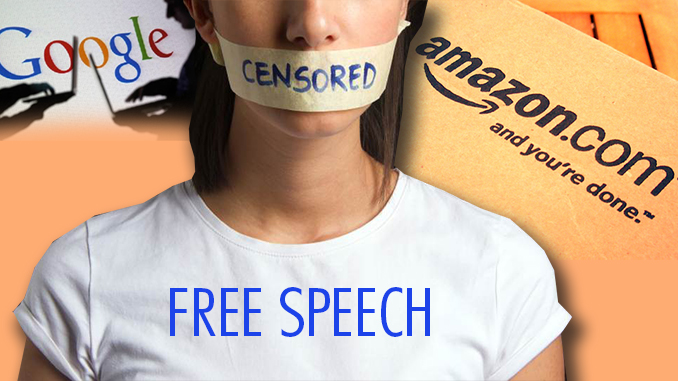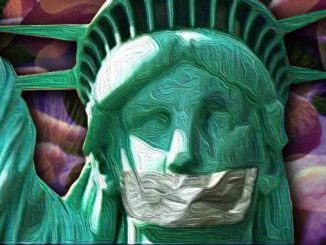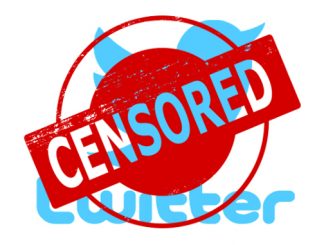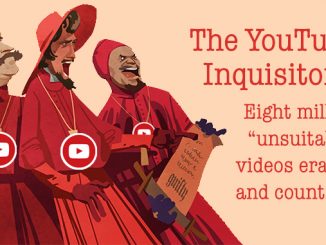
Recent court rulings seem to favor Amazon and Google in the ongoing battle over Internet censorship. AFP asked a professor who specializes in Internet law to explain how such tech giants are legally allowed to censor the Internet.
By Dave Gahary
As readers and supporters of American Free Press and its sister publication The Barnes Review are well aware, books and videos considered to be verboten by the reigning tech giants have been removed for sale or distribution from these companies’ bookstores and websites.
“In early March, to the shock and dismay of free speech advocates around the world, Internet retail giant Amazon caved to pressure from special interest groups and mainstream news outlets and quietly pulled at least 100 political and historical books from its website,” wrote Paul Angel recently in AFP.
SINGLE MALE over 50, Polish-Italian, non-smoker, in good shape, articulate,
attentive seeking a single female, slender, intelligent, down-to-earth, who’s
looking for love and willing to relocate. Serious calls 727-492-8164.
Prior to this mass book banning, YouTube, the video-sharing website created by three former PayPal employees in 2005 and bought by Google in 2006 for $1.65 billion, has come down hard on videos on AFP’s website, by sending a shot across our bow in the following email:
As you may know, our Community Guidelines describe which content we allow—and don’t allow—on YouTube. Your video ‘Jewish Groups Shut Down Canadian Newspaper’ was flagged for review. Upon review, we’ve determined that it violates our guidelines. We’ve removed it from YouTube and assigned a Community Guidelines strike, or temporary penalty, to your account.
We encourage free speech and defend everyone’s right to express their points of view, even if unpopular. However, YouTube doesn’t allow hate speech. Sometimes there’s a fine line between what is and isn’t considered hate speech. If you’re not sure whether or not your content crosses the line, we ask that you don’t post it.
This is the first strike applied to your account. We understand that users seldom intend to violate our policies. That’s why strikes don’t last forever—this strike will expire in three months. However, it’s important to remember that additional strikes could prevent you from posting content to YouTube or even lead to your account being terminated.
The video cited, “Jewish Groups Shut Down Canadian Newspaper,” was simply an audio interview this reporter conducted with Dr. James Sears, editor-in-chief of Your Ward News, a quarterly local newspaper distributed in Toronto, discussing the fact that Jewish groups had complained to Canadian politicians about Sears’s newspaper. In response, Minister of Public Services and Procurement Canada Judy Foote ordered Canada Post to stop the distribution of the paper, which was called “anti-Semitic” and “racist” by its critics.
Naturally, Foote would not make such a move unless someone complained, and that someone, as is clearly documented, was Jewish groups. So there was nothing “hateful” about the interview. Sears was just explaining what happened.
YouTube attacked some other videos as well, claiming they were not “advertiser friendly.” This is quite odd, as the videos merely discussed a very hot topic: the 2012 Sandy Hook school shooting. These videos, which were simply audio interviews adapted to video format, can garner income, depending upon how many views or listens they accumulate. YouTube would have none of that with this video:
Hi American Free Press,
Thanks for submitting your video(s) for monetization. We didn’t approve your video(s) for monetization because the content in your video(s) or video details may not be advertiser-friendly. If you believe that the content in your video is advertiser- friendly, you can request an additional review below:
“Wolfgang Halbig Gains Some Ground”
Please note that review times may vary, and YouTube reserves the right to make the final decision whether to monetize a video. All videos are subject to our Terms of Service and Community Guidelines, and may be removed from the site if they don’t meet those standards.
Thanks,
The YouTube Team
AFP received a nearly identical warning when it came to the interview we conducted with Dr. James Tracy titled “Firing of Professor for Sandy Hook Beliefs Cowardly.”
NO RECOURSE
Do booksellers and content creators have any recourse if Amazon and YouTube remove content they deem to be “offensive”?
The short answer is “no,” as this newspaper discovered via an email exchange with one of the nation’s top Internet law professors.
Eric Goldman is a professor at Santa Clara University School of Law in California, where he teaches and publishes in the areas of Internet law, intellectual property, and advertising and marketing law.
This reporter became acquainted with Goldman via an article he wrote for Forbes entitled “Can YouTube ‘Remove and Relocate’ User Videos Capriciously?” The article makes reference to Section 230 of the Communications Decency Act, which is central to understanding why these tech giants can do as they wish.
The act was part of the Telecommunications Act of 1996, which amended or repealed sections of the Communications Act of 1934 and was the first major overhaul of U.S. telecommunications policy in nearly 62 years. It allows Internet service providers (ISPs) and other service providers to restrict customers’ actions without worrying about being found legally liable. Specifically, the act states: “No provider or user of an interactive computer service shall be treated as the publisher or speaker of any information provided by another information content provider.”
Section 230 had its beginnings in protecting children, and was passed in part in reaction to 1995’s Stratton Oakmont, Inc. v. Prodigy Services Co., “which suggested that service providers who assumed an editorial role with regard to customer content, thus became publishers, and legally responsible for libel and other torts committed by customers.” Section 230 was passed to allow service providers to delete and monitor content without becoming publishers.
The court stated in another lawsuit, Zeran v. America Online, Inc., (where the plaintiff, Kenneth M. Zeran’s phone number was posted on an Internet bulletin board that glorified the bombing of the Alfred P. Murrah Federal Building, which Zeran had no connection to or involvement with) that:
Congress enacted § 230 to remove the disincentives to self-regulation created by the Stratton Oakmont decision. Under that court’s holding, computer service providers who regulated the dissemination of offensive material on their services risked subjecting themselves to liability, because such regulation cast the service provider in the role of a publisher.
Fearing that the specter of liability would therefore deter service providers from blocking and screening offensive material, Congress enacted §230’s broad immunity ‘to remove disincentives for the development and utilization of blocking and filtering technologies that empower parents to restrict their children’s access to objectionable or inappropriate online material,’ and ‘the amount of information communicated via interactive computer services is . . . staggering.’ The specter of tort liability in an area of such prolific speech would have an obviously chilling effect. It would be impossible for service providers to screen each of their millions of postings for possible problems.
Faced with potential liability for each message republished by their services, interactive computer service providers might choose to severely restrict the number and type of messages posted. Congress considered the weight of the speech interests implicated and chose to immunize service providers to avoid any such restrictive effect.
AFP asked Goldman about the significance of Section 230. “Section 230(c)(2) is directly relevant by providing websites with a safe harbor for removing content they consider objectionable,” he explained. “The website’s terms of service are also highly relevant, such as where the sites say they can terminate accounts or delete content at their discretion.”
Since Section 230 allows these companies to censor any material they wish, AFP asked if it is foolish for someone “to piggyback on the audience aggregated by third party intermediary publishers,” like YouTube, since “the cloud service provider’s policies and practices can easily moot those investments with little recourse, judicial or otherwise.”
“I don’t think it’s foolish at all,” Goldman said. “Usually, content producers must rely on third party intermediaries for ‘distribution,’ i.e., to reach a broader audience. However, if the distributor has the contractual and legal right to pull the rug out from under the content producer at any time, then the content producer either needs to accept that contingency or bargain for a better deal.”
AFP asked what would be an example of “the contractual and legal right to pull the rug out from under the content producer at any time.”
“A clause like, ‘We can terminate your account or delete your content at any time in our sole discretion,’ ” he explained.
It’s worth emphasizing that Goldman inexplicably disagrees with the argument that Amazon and Google, which operate as virtual monopolies when it comes to book sales and advertising on the Internet, should not censor media companies, given that even Eric Schmidt, the chairman of Google’s parent company, Alphabet Inc., conceded to Business Insider recently, “[Google] was founded under the principles of freedom of expression, diversity, inclusiveness and science-based thinking.”
AFP finally asked Goldman about Amazon’s book banning binge and if Section 230 allows Amazon to get away with this.
“Probably, but we may not need to get that far,” he said. “Retailers are not required to put any particular item on their shelves.”
Dave Gahary, a former submariner in the U.S. Navy, prevailed in a suit brought by the New York Stock Exchange in an attempt to silence him. Dave is the producer of an upcoming full-length feature film about the attack on the USS Liberty. See erasingtheliberty.com for more information.






THE Internet belongs to: WE THE PEOPLE AND NO ONE ELSE !!!!!!!!!!!!!!